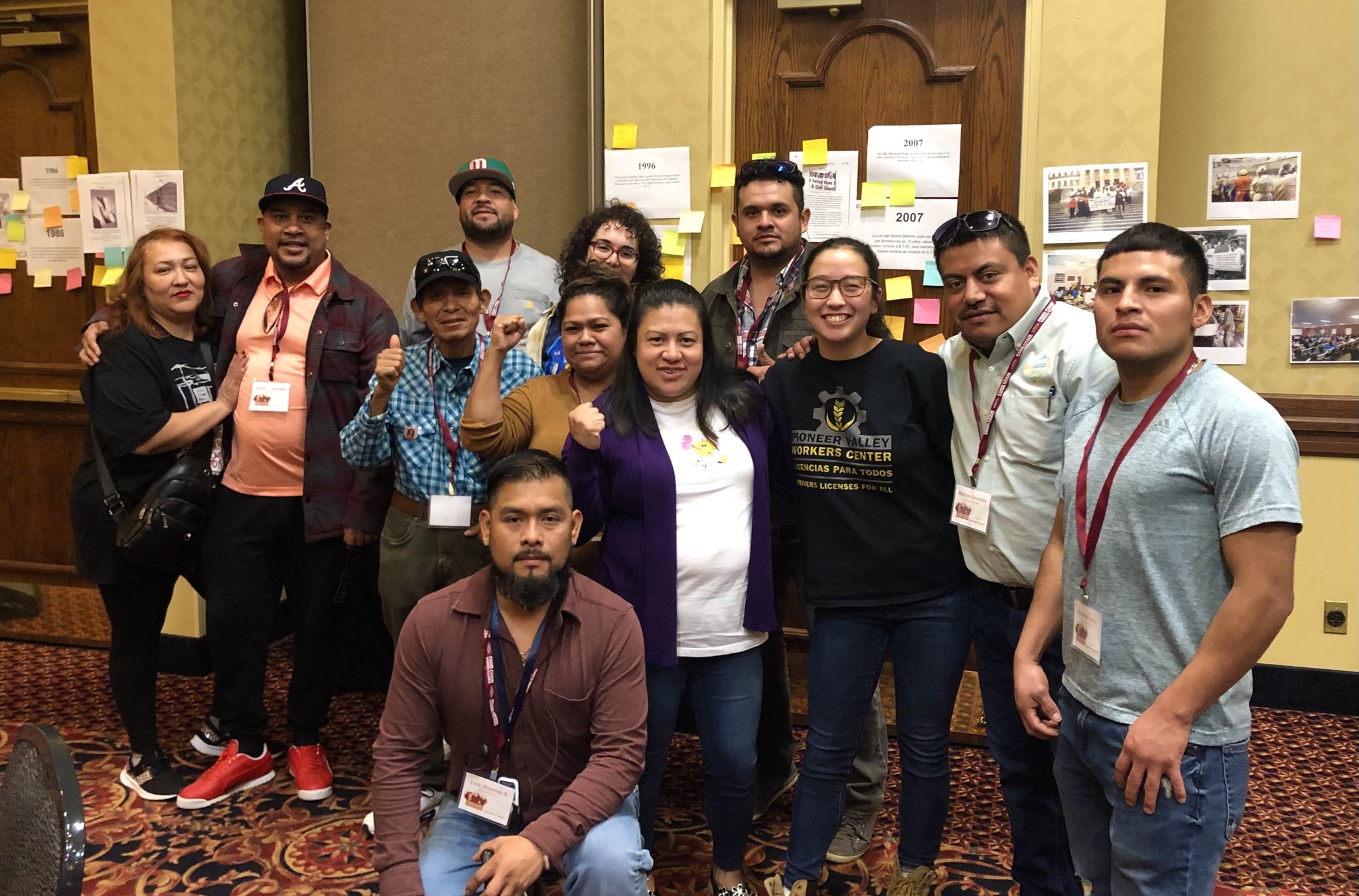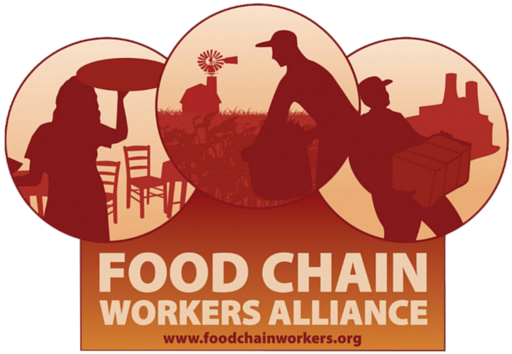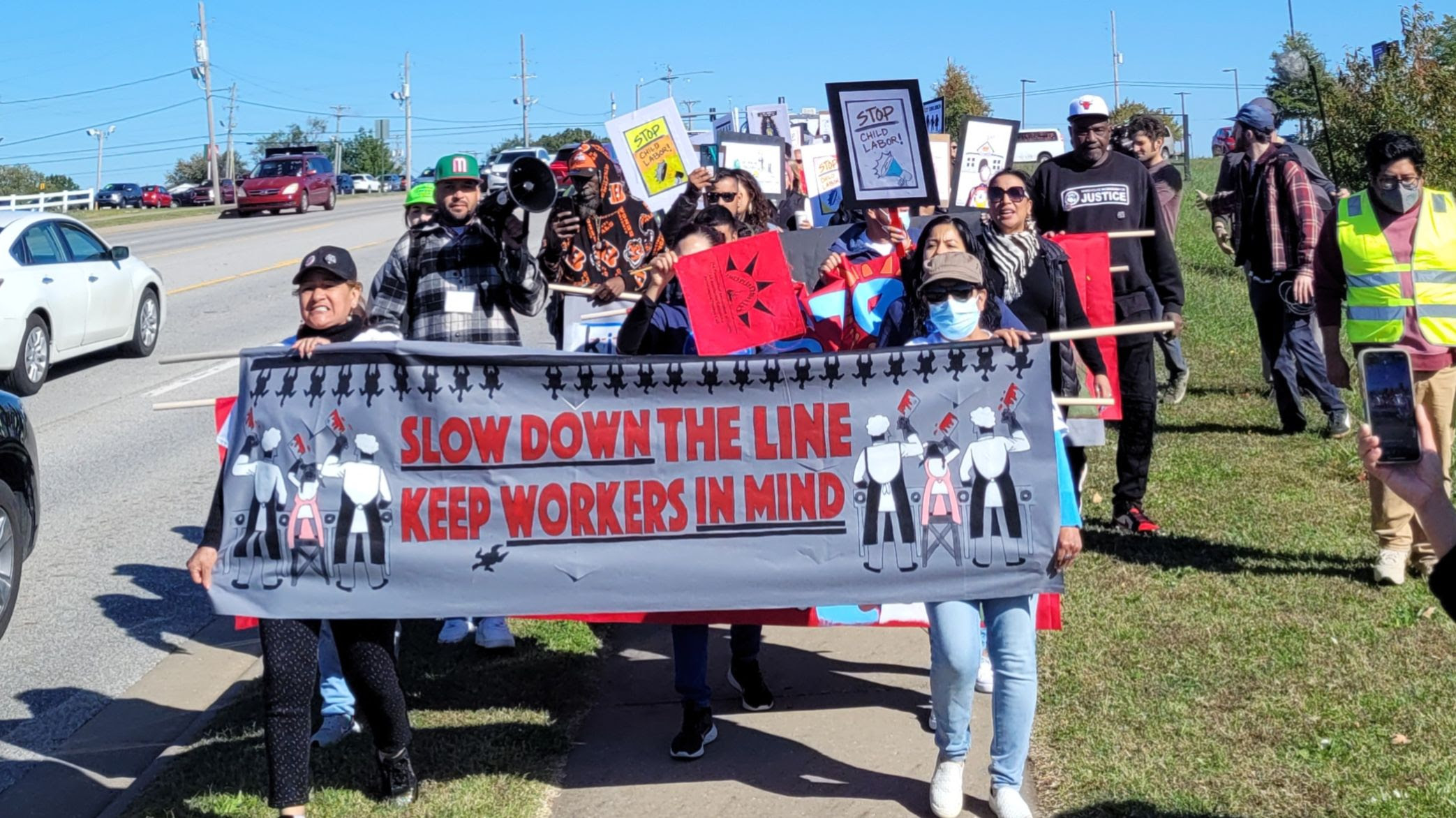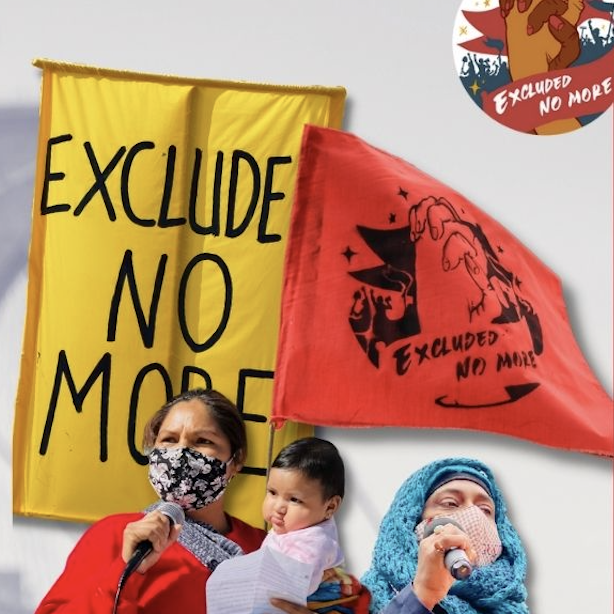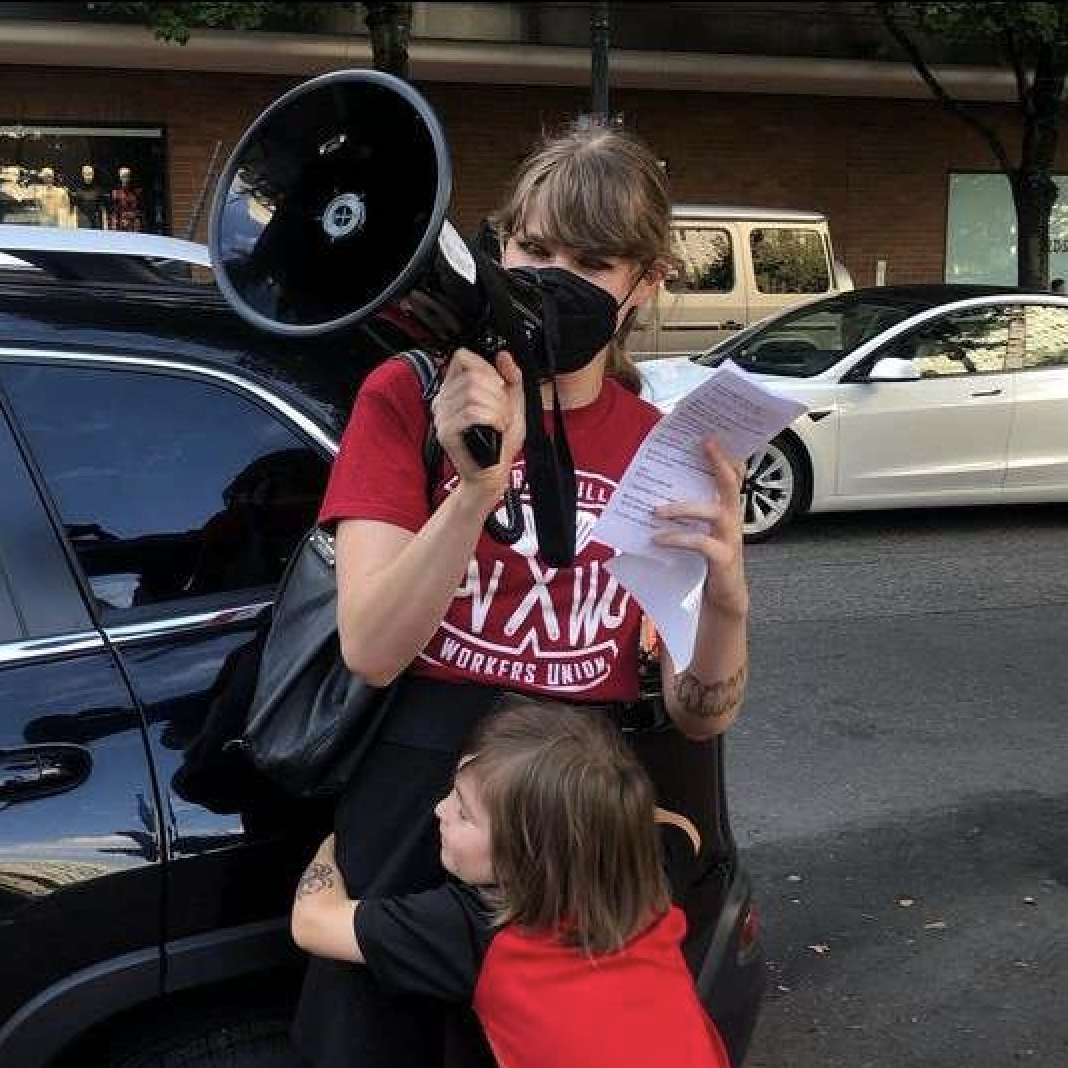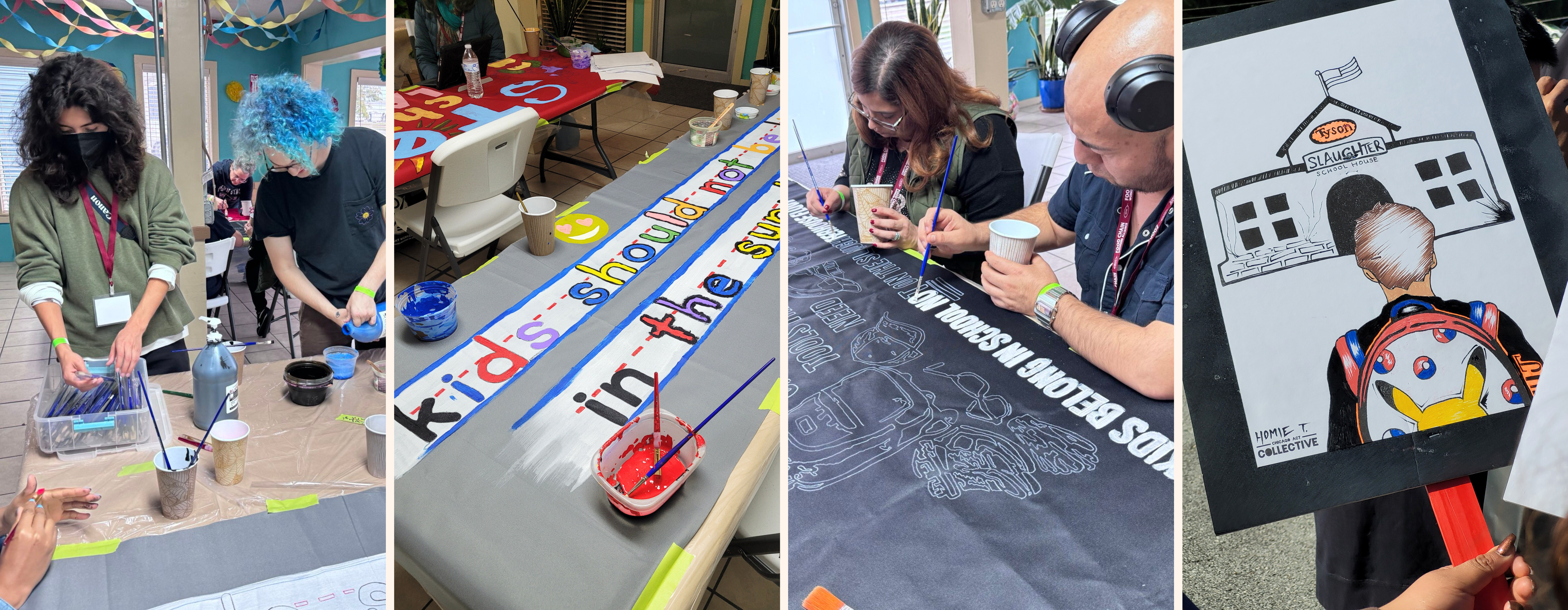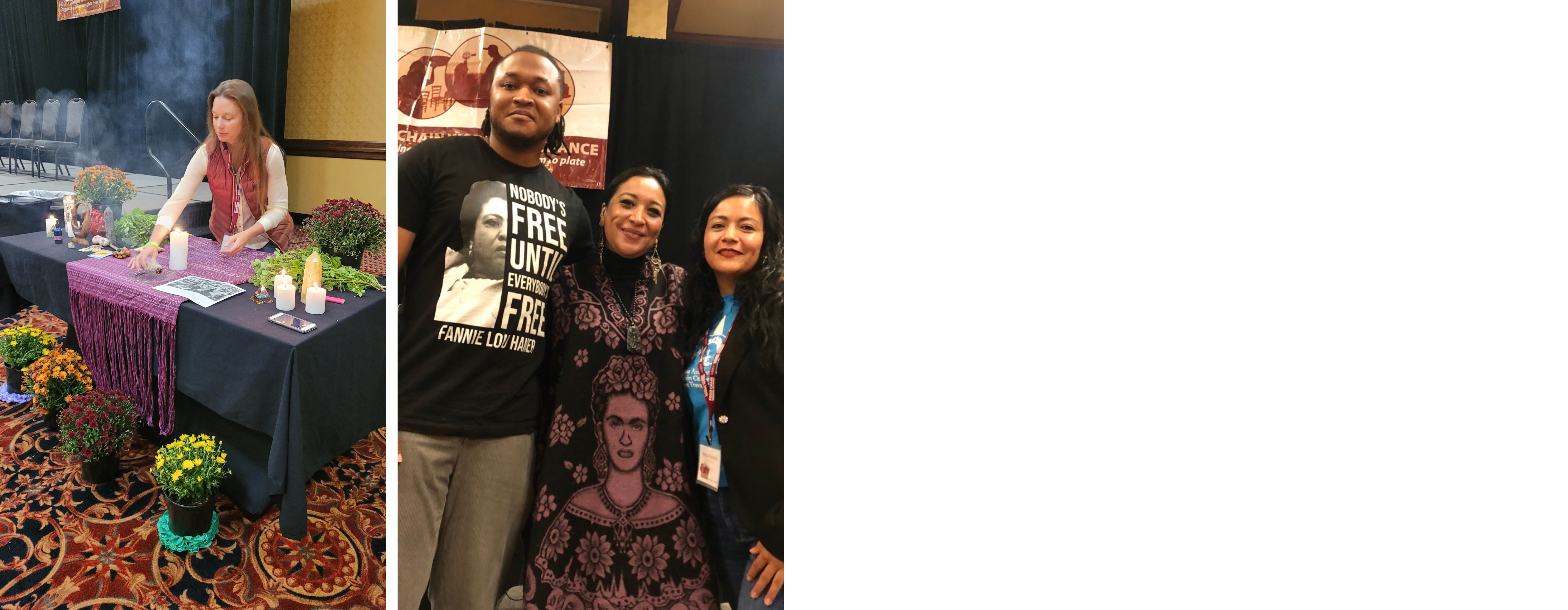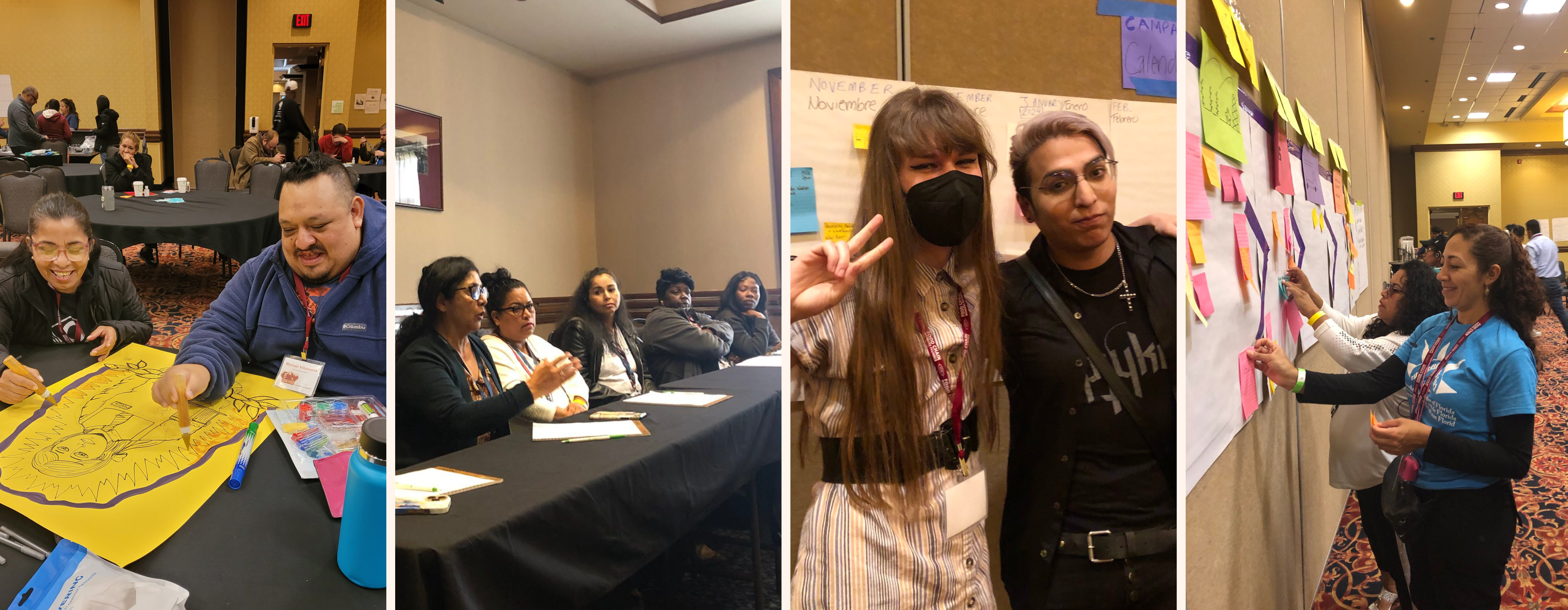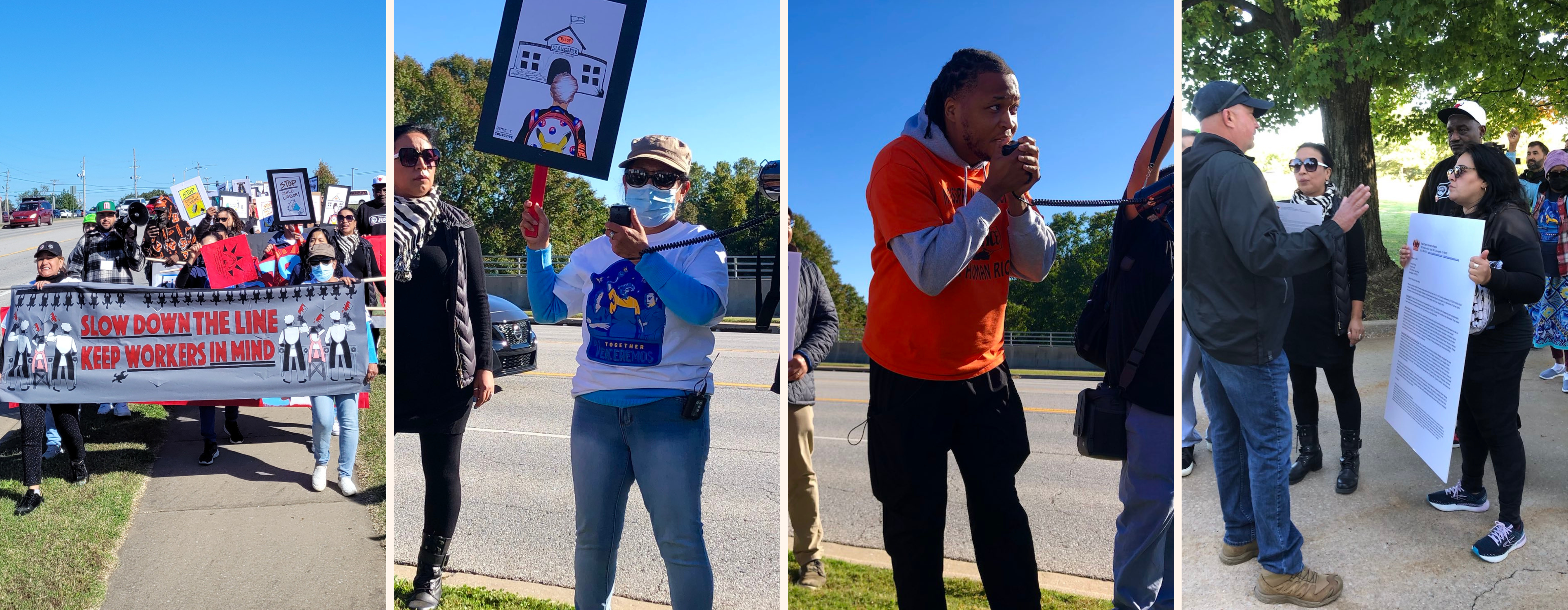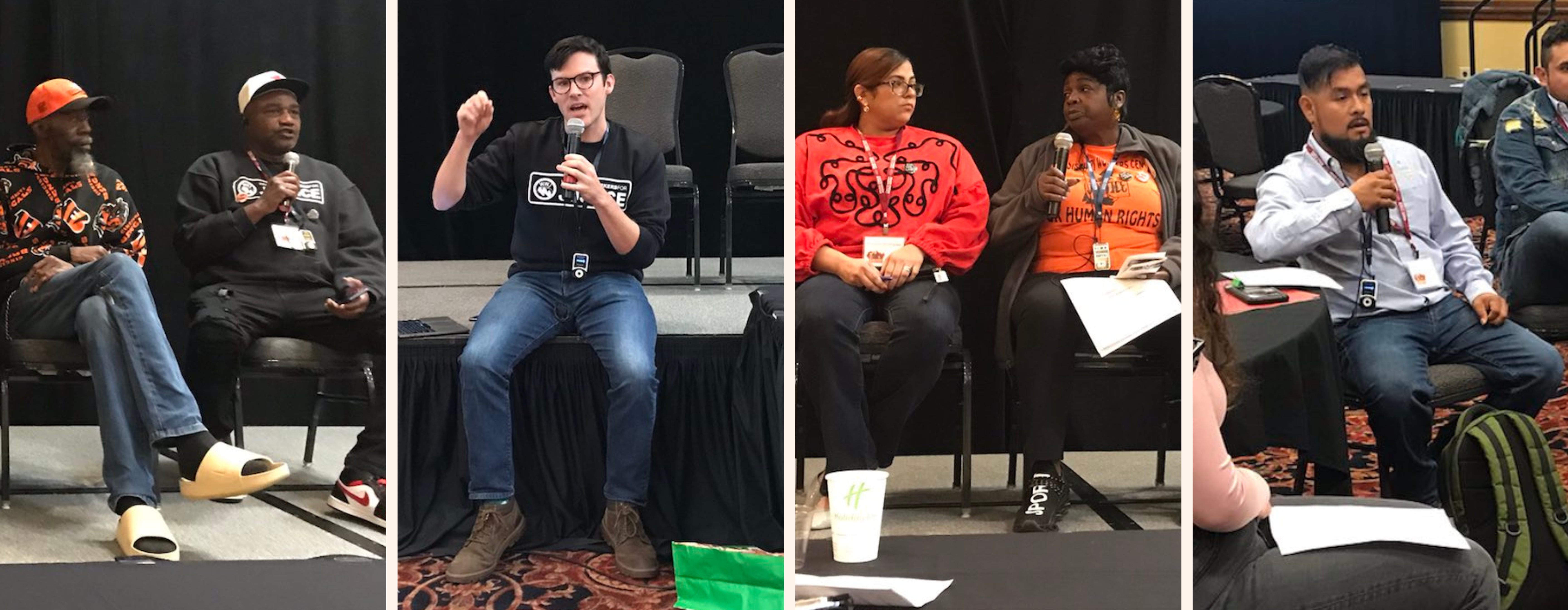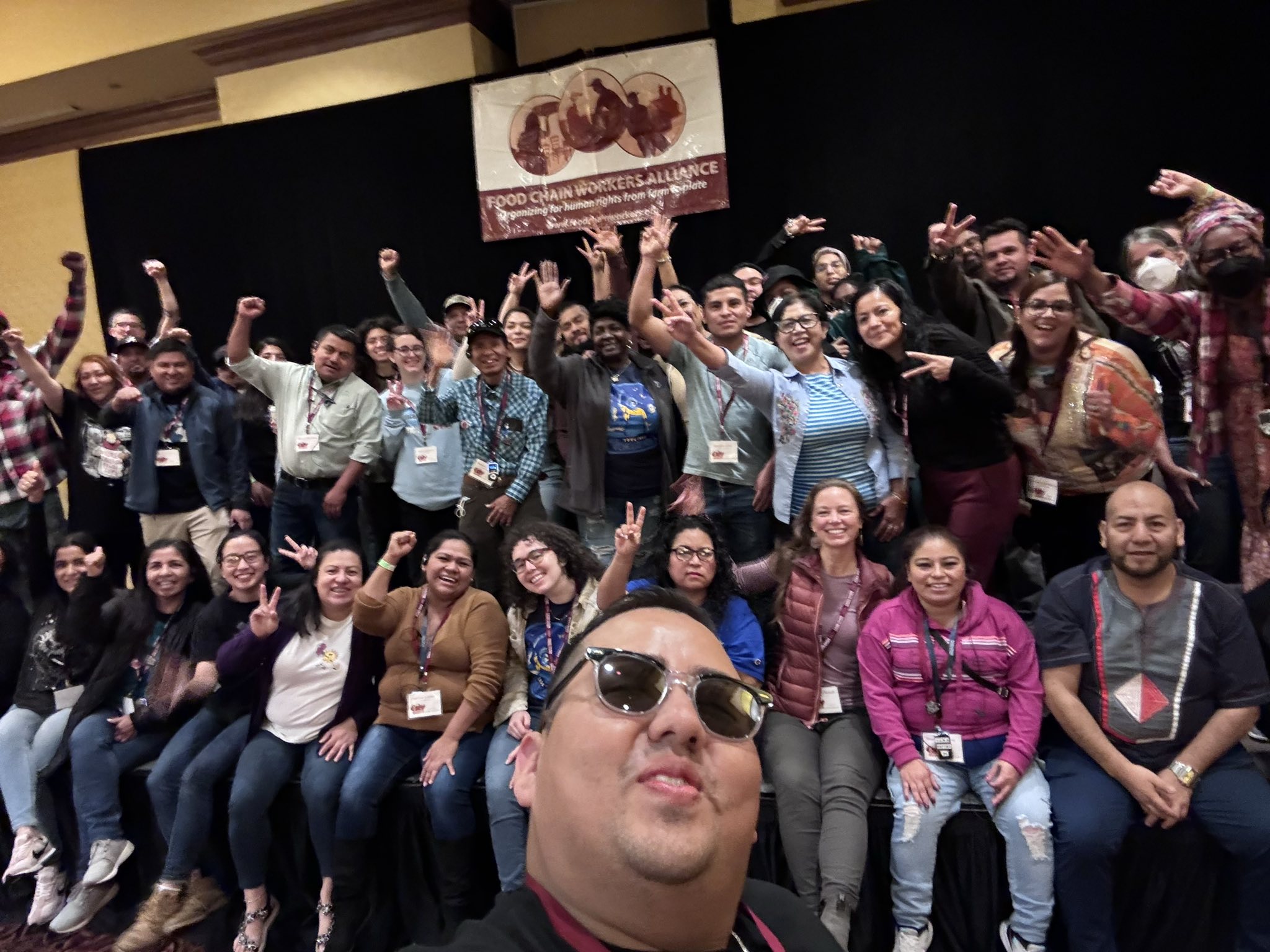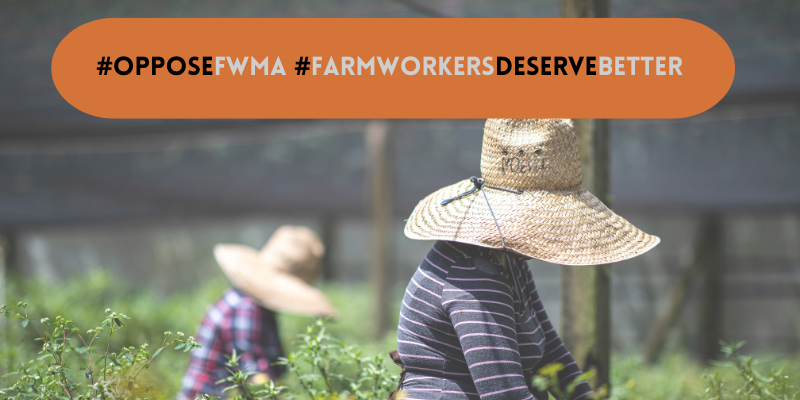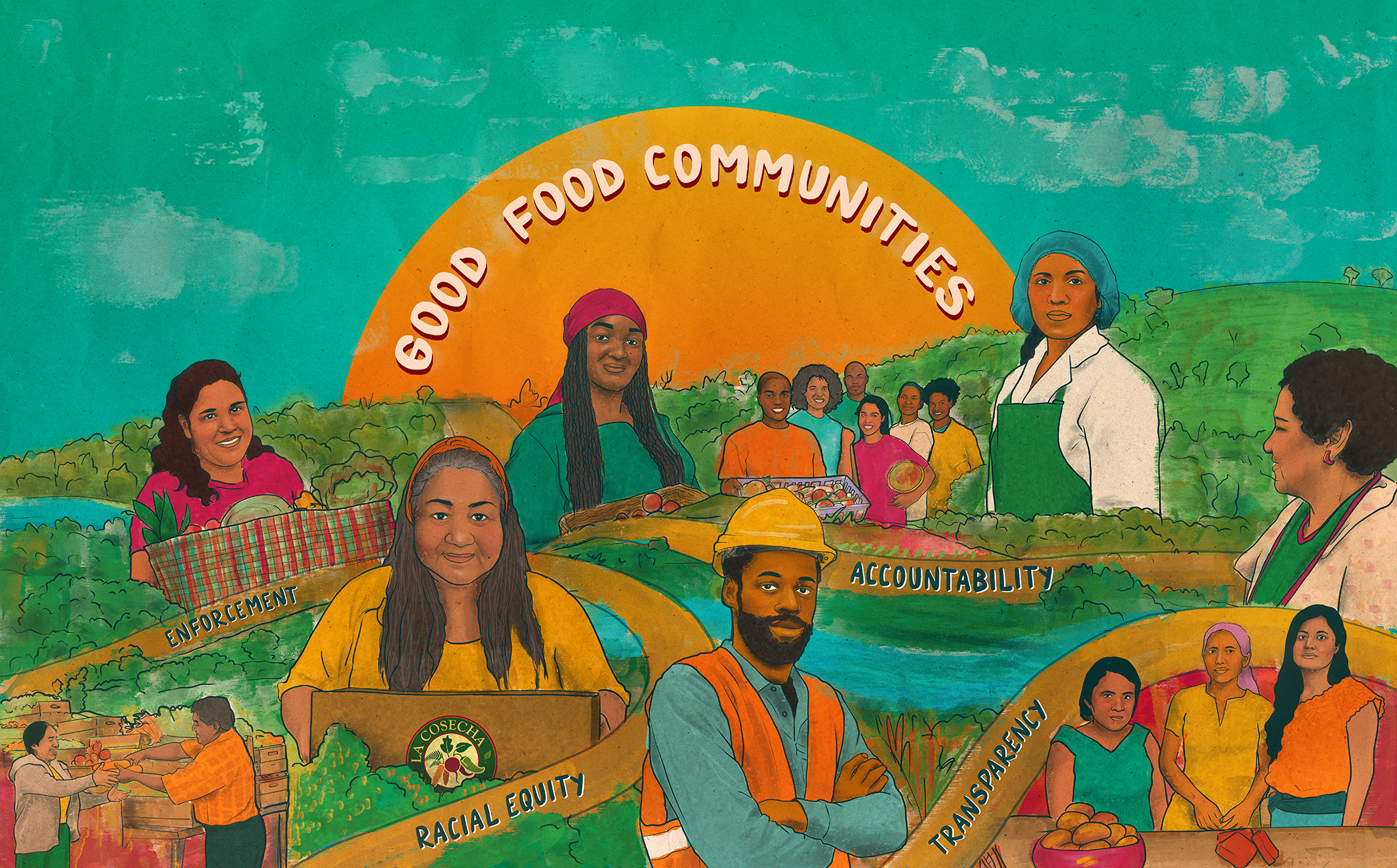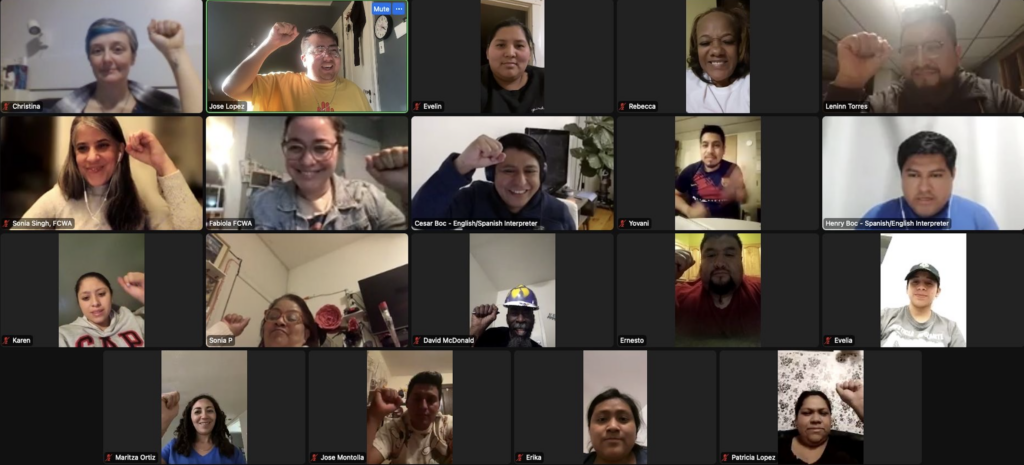
Before we fight on for worker power in the new year, let’s look back and celebrate all we’ve accomplished. Our can’t-miss articles from 2023 feature FCWA members’ work and issues we’re focused on collectively: freedom of movement, grassroots worker-led organizing, solidarity economies, human rights, heat stress & more:
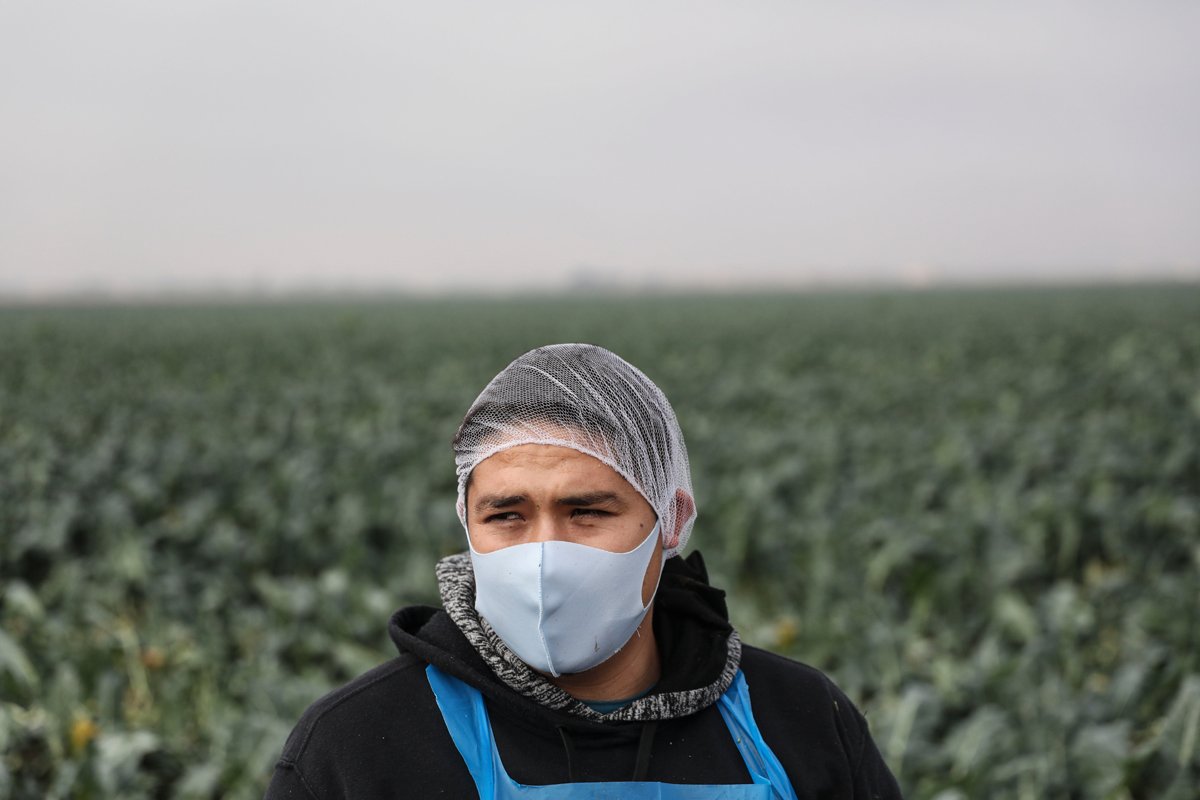

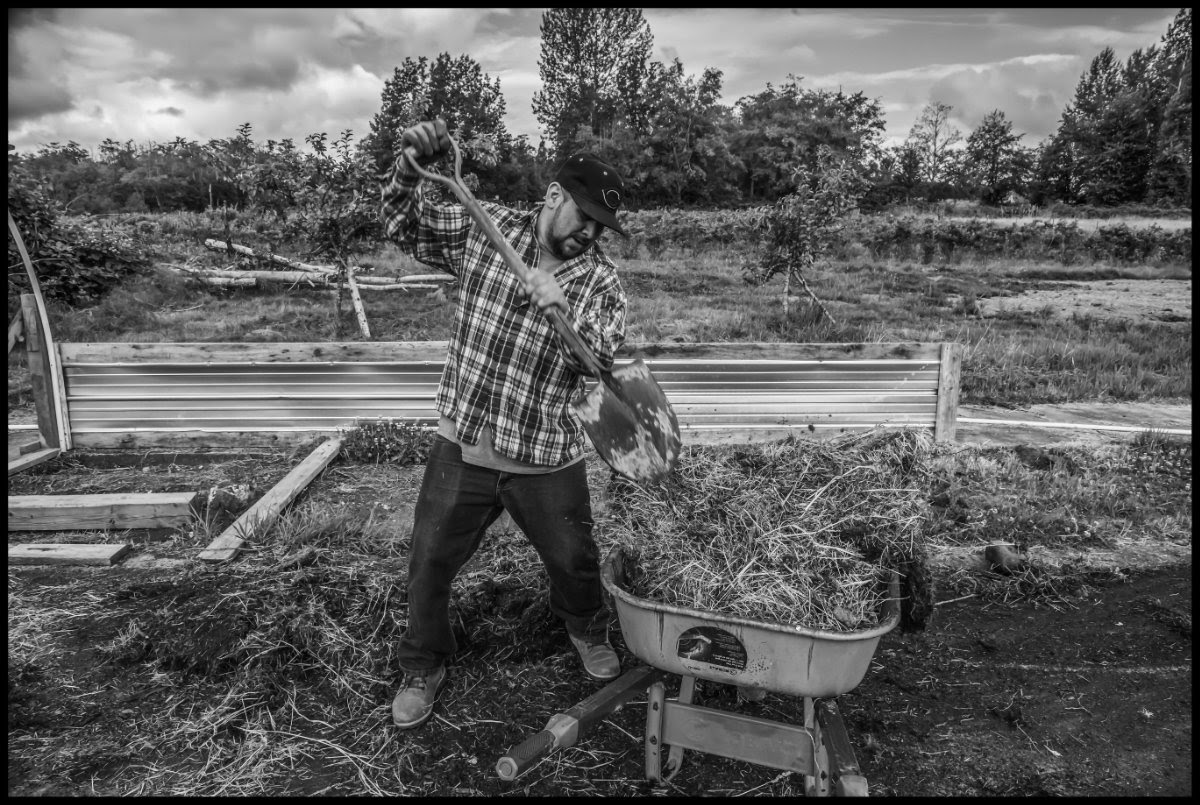
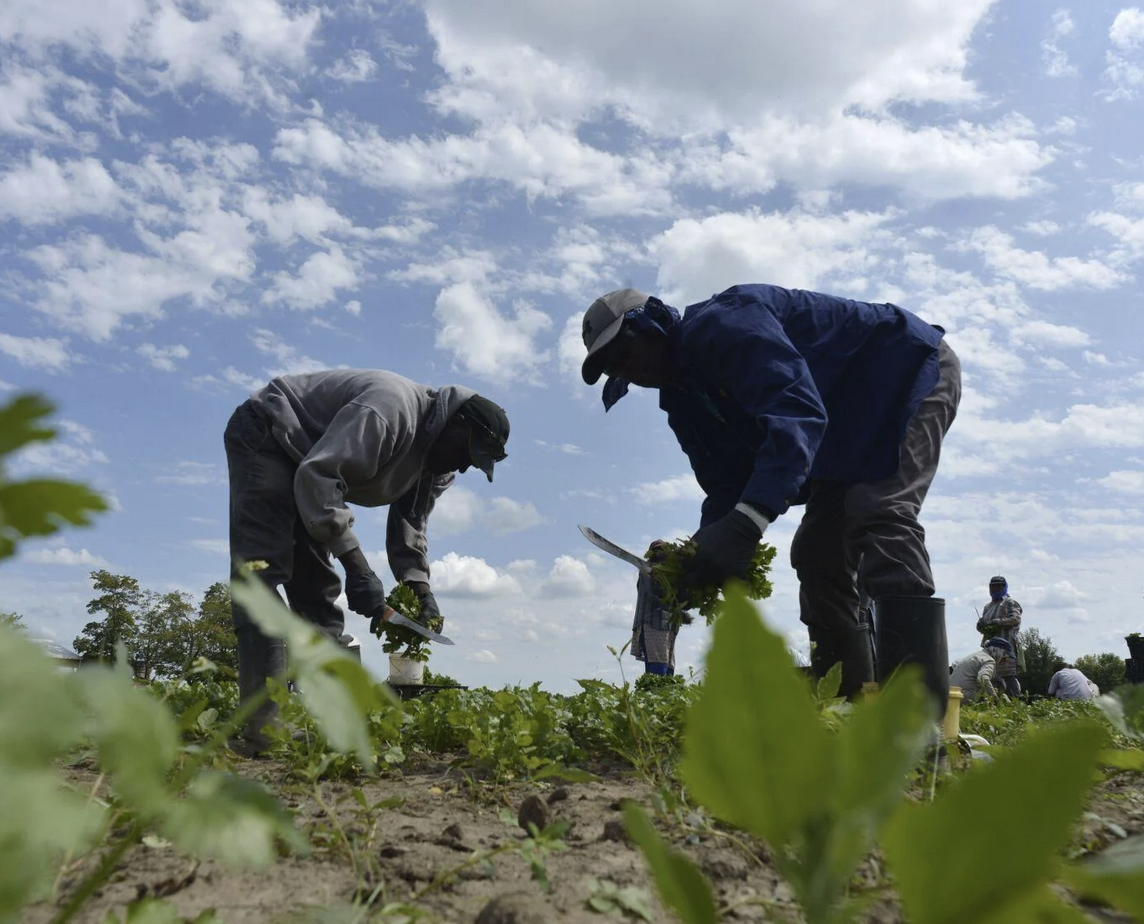
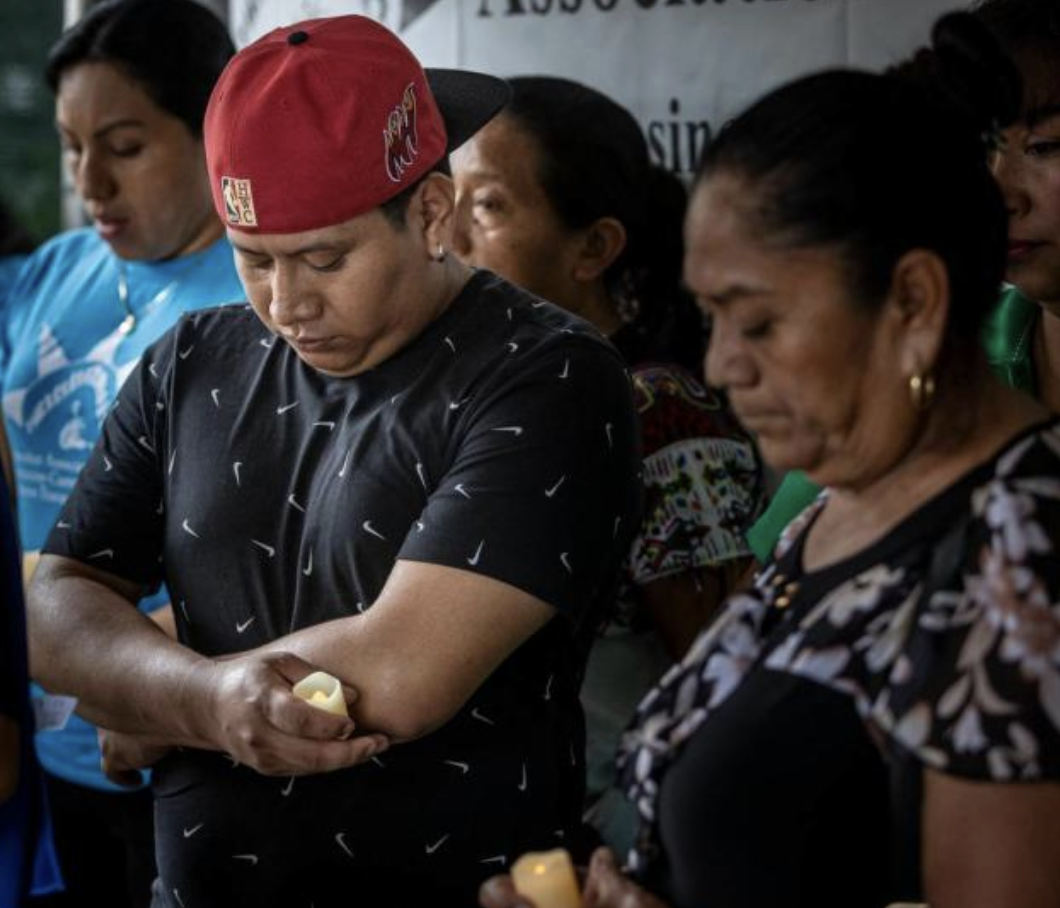
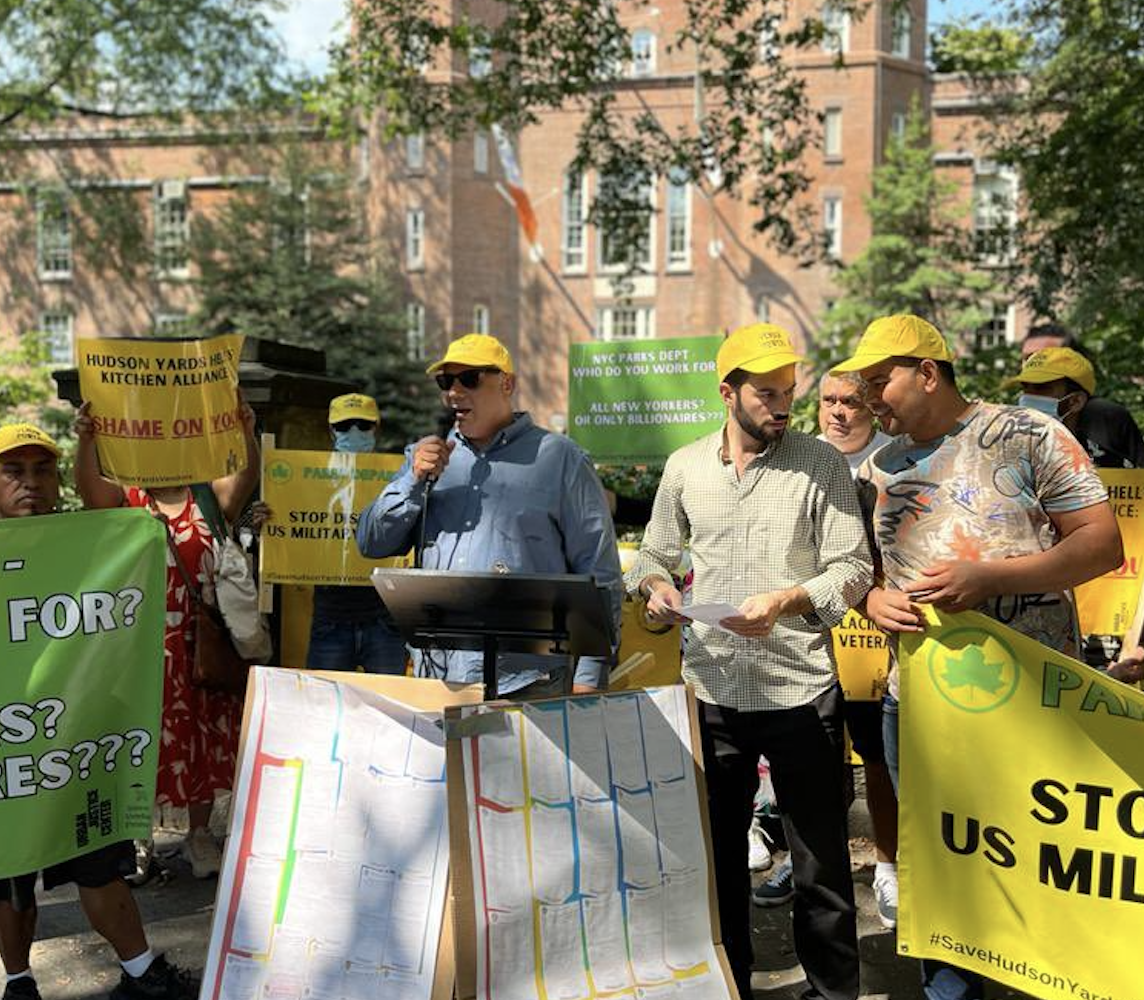
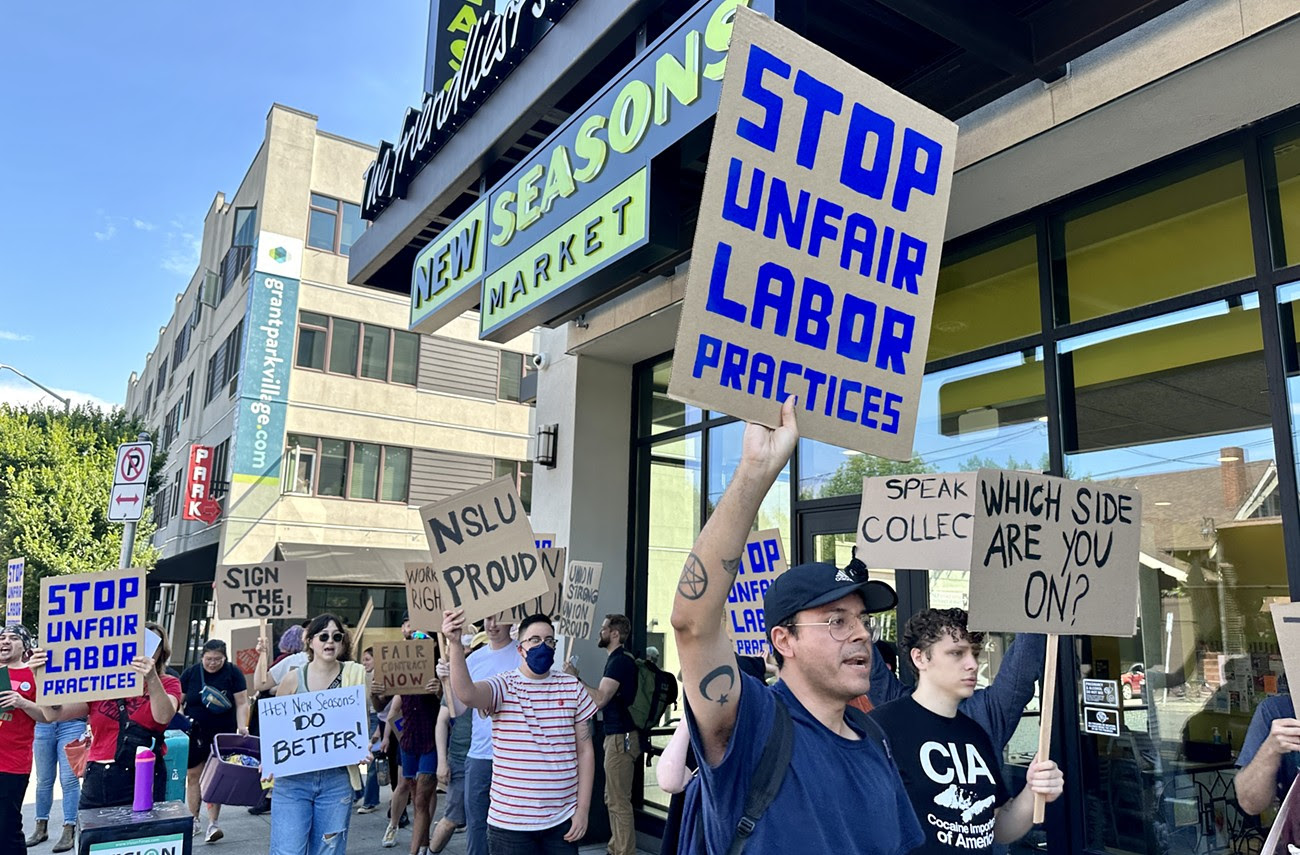
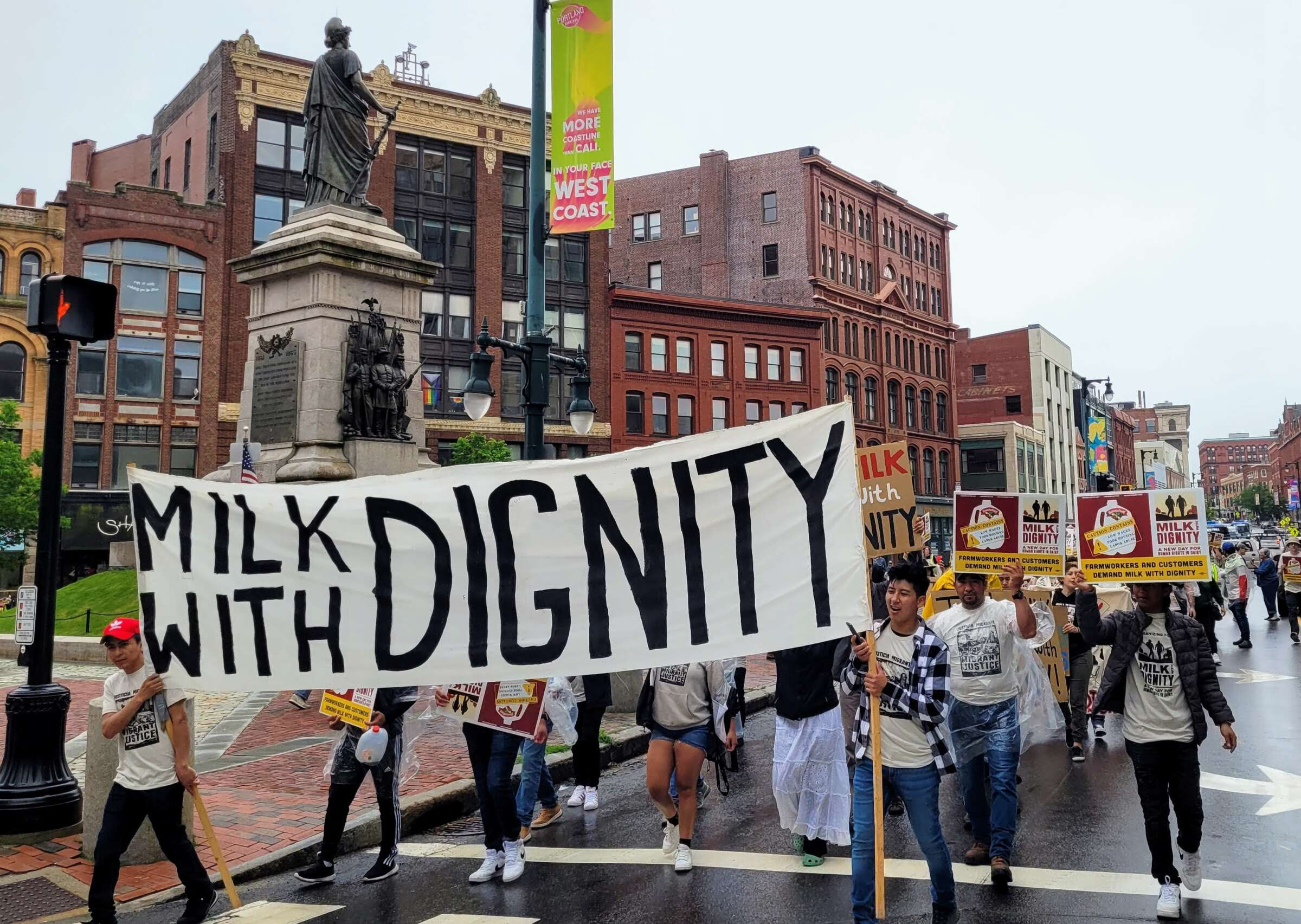
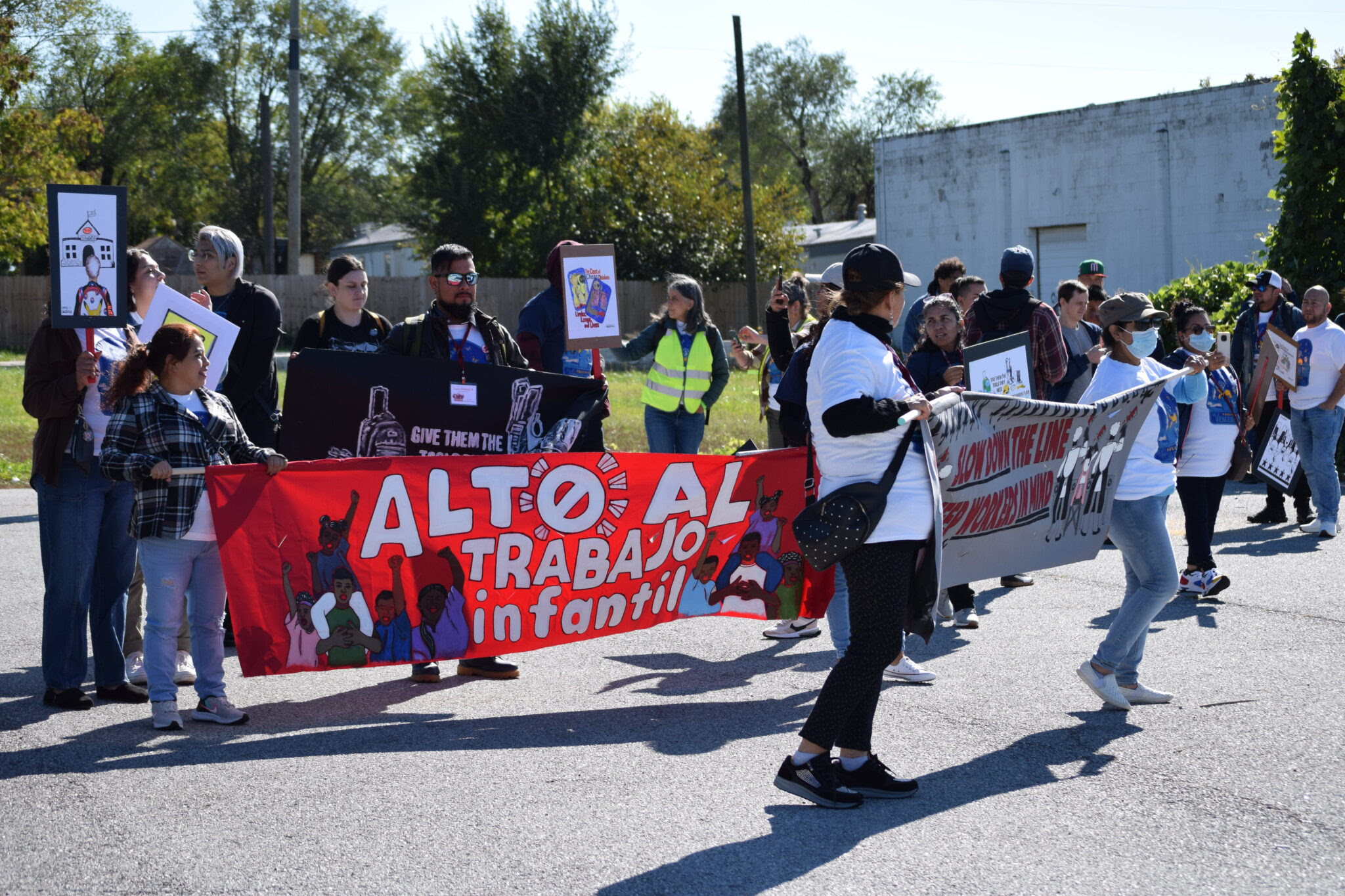
Congress Killed a Bill to Give Farmworkers a Path to Citizenship. What Comes Next?
Civil Eats, 2/22/23 | Featured member: Alianza Agrícola
“The legislation got as far as it did, and ultimately failed, because it represented a major compromise between farmworker advocates and the agricultural industry—two groups with very different needs. As a result, neither side liked the whole package very much. And from the get-go, there was fierce disagreement within groups on both sides.”
The Long Road to Justice for NYC Wage Theft Victims
City Limits, 2/23/23 | Featured member: Laundry Workers Center
“More than three years after 15 laundry workers first lodged their complaint with New York Attorney General Letitia James, the employees—all Latina immigrant women—finally received the first checks for their owed salaries. The case is emblematic of what can be a long road to justice for victims of wage theft, which lawmakers estimate impacts some 2.1 million New Yorkers each year.”
Photo Essay: A Cooperative Farm’s Long Path to Liberation for Farmworkers
Civil Eats, 6/29/23 | Featured members: Familias Unidas por la Justicia & Community to Community Development
“The co-op began looking to the workers’ Indigenous culture to find new products to grow, and a market for them. Co-op members experimented first with nopal, or prickly pear cactus. Nopal is a staple in Mexico, used in everything from salads to scrambled eggs. Some of the first year’s crop was lost to cold weather, so today the plants begin in a greenhouse long before being replanted outside.”
Canada’s migrant farm worker program was founded on ‘racist’ policies, new lawsuit alleges. And today’s workers are still paying the price
Welland Tribune, 12/11/23 | Featured member: Justicia for Migrant Workers
“The lead plaintiff, a migrant farm worker from Jamaica, told the tribunal he was given the option of either submitting DNA to police or losing his job. Of the 100 farm workers offered a similar choice, only four refused. In the end, none of the DNA samples that police collected matched what was found at the crime scene.”
Calls for change after Florida farmworker, 29, dies in heat. ‘Is this what we deserve?’
Miami Herald, 7/20/23 | Featured member: Farmworker Association of Florida
“All of this could have been prevented with the right legislation,” said Yvette Cruz, a spokesperson for the Farmworker Association of Florida. “All we ask is for four basic things: water, shade, breaks and to work with somebody — not to be left alone.”
Street Vendors Fight for Public Space Outside Hudson Yards
Documented NY, 7/20/23 | Featured member: Street Vendor Project
“We’ve been here since before Hudson Yards even existed, feeding the construction workers,” he said. “And now that Hudson Yards is up and running, and after we’ve suffered – we’re being displaced because we don’t fit their vision. I served my country, why can they put us out of business so easily?”
Organizing Portland, Local Labor Organizers See Surge in Union Solidarity, Diversity
Portland Mercury, 9/14/23 | Featured member: Burgerville Workers Union
“While certain fields— like the automobile and education industries— have long been seen as fixtures in American organized labor, other industries have much less union participation. But Portland retail and restaurant workers are leading a paradigm shift. In addition to Burgerville, which formed its union in 2016 and reached a contract in 2021, workers are getting organized at Portland’s donut shops, grocery stores, pet shops, strip clubs, and more.”
A Worker-Driven Model for Protecting Labor Rights Is Successful — and Expanding
truthout, 10/15/23 | Featured member: Migrant Justice
“Under the Fair Food Program, retailers and growers agree to abide by a “Code of Conduct” that is shaped by, and protects, farmworkers. This is cemented in a signed, legally-binding agreement that is enforced, largely, by workers themselves through regular education sessions and a multilingual 24/7 hotline. An independent body, the Fair Food Standards Council, conducts investigations into abuses and undertakes serious audits. The program also includes a Fair Food Premium that retailers pay that ends up in workers’ paychecks as a bonus.”
Protestors urge Arkansas’ Tyson to commit to child labor, worker safety protections
Arkansas Advocate, 10/17/23 | Featured member: Venceremos
“Children, including migrant children, should never be exploited for their labor or subjected to the dangerous working conditions in Tyson plants and in your supply chain,” the letter reads. “We know that Tyson has a no tolerance policy when it comes to illegal child labor, but it’s unclear how Tyson ensures accountability to that commitment, because the Company does not disclose that information.”
